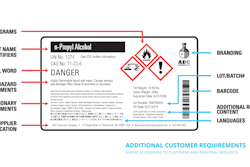Business is different today. The rise of globalization, outsourcing and rapidly changing market dynamics is prompting companies to adopt more variable operating models to maximize agility and minimize risks. Businesses are more dependent upon external suppliers, talent and partners than ever to do everything from product innovation to manufacturing to distribution and customer service. And a growing portion of their workforce isn’t even on their full-time payroll.
Welcome to the virtual enterprise. And a new era for procurement.
Business is no longer about executing a service within a company, but across an entire value chain. It’s not only about the intelligence within an organization, but the intelligence of entire communities. It’s not about automating and doing things faster, but tapping collective insights and best practices to do things better—and in entirely new ways.
Procurement can and will play an increasingly strategic role in managing this virtual enterprise, leveraging technology to simplify the way complex business gets done, and managing their operations in a new and dynamic way that keeps their companies ahead of the competition. Procurement is evolving from service to a function. And with increasing frequency, it is focused on business value and enabling supplier innovations as opposed to just driving procurement savings through cost reductions.
And this transformation will continue in 2015. Here are a few predictions for what lies ahead:
Collaboration Will Become a Priority
The 21st Century businesses simply can’t achieve its cost, revenue and cash flow goals without being connected. Empowered by business networks, the chief procurement officer (CPO) will effectively become the chief collaboration officer, organizing resources and optimizing collaboration within the enterprise and across the supply chain to achieve new levels of innovation, efficiency and agility for the enterprise.
Technology Will Change the Game
Technology is driving a new wave of productivity by digitizing key financial and business processes, and enabling collaboration across the organization, and this trend will continue. Paper-based purchase orders and invoices will become a thing of the past, replaced by end-to-end automated transactions. But more important, best-in-class organizations will fuel the next wave, leveraging business networks to extend these processes and systems beyond the four walls of the enterprise, and create a virtual extraprise of partners into a shared community, executing improved, fully automated, and coordinated processes in a more informed way than in the past.
Innovation Will Accelerate
Driving supplier innovations is critical in today’s connected and global economy. Business networks will drive them by enabling new processes, insights, and levels of collaboration among buyers and suppliers that lead to more cost-effective manufacturing, product enhancements and even new services.
Business Will Run Simpler
Personal networks from Facebook to Twitter are making it simple for consumers to shop, share, and consume in new and more informed ways. Business networks provide an equally easy and scalable way for companies to discover, connect, and collaborate with the trading partners and resources they need to operate in today’s dynamic world. Procurement will tap into these networks to create a simple, consumer-like experience in which, with just a few clicks, they can shop for goods and services, place and manage orders, and pay for them electronically, and view and manage spend across all major categories through a single, connected platform.
Imagine combining the social media capabilities of Facebook with the selling opportunities of eBay, Amazon and Alibaba for business …
Lines Will Blur
Fueled by networks, procurement will take the lead in integrating business processes and collaborating across functions in entirely new ways that drive value. CPOs will, for instance, engage in helping to manage the financial supply chain, turning payables into a profit center because they have real-time visibility into whether an invoice is OK to pay, and whether it was matched against purchase orders and contracts. Or extending days payable outstanding to improve the overall balance sheet, while at the same time offering early payment discounts to suppliers to mitigate both financial and supply risk.
Procurement Will Continue to Transform
With the automation of core processes—sourcing, procurement and payables—procurement will finally be freed from the basic blocking and tackling of negotiating agreements, managing suppliers and executing orders to spend more time working with suppliers, developing supply, capturing innovation and driving long-year roadmaps to create value.
The time is never going to be greater for procurement to contribute to the corporate agenda. Just as network-powered upstarts like Square and Airbnb are creating new models that are transforming entire industries, procurement organizations that leverage business networks can fuel a new way of operating—and deliver their organizations to levels of excellence they never imagined were possible.
Dr. Marcell Vollmer is the chief procurement officer at SAP.












